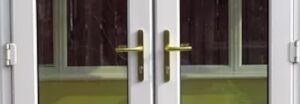A Cheat Sheet For The Ultimate For Door Locks Repair

Understanding Door Locks Repair: A Comprehensive Guide
Door locks are essential components of any safe environment, whether in residential, commercial, or automobile contexts. With time, these mechanisms might use down, malfunction, and even break, requiring repairs. Understanding how to handle door lock repairs can save individuals time, cash, and the hassle of compromised security. This article explores common door locks issues, steps for repairing various kinds of locks, and when it may be needed to call a professional.
Common Door Lock Issues
Before diving into repair strategies, it’s vital to recognize common issues that may develop with door locks:
- Sticking or Jammed Locks: A lock that is hard to turn or sticks can be an indication of internal issues or dirt build-up.
- Key Won’t Turn: This can happen due to misalignment, a broken key, or internal clogs within the lock.
- Loose or Wobbly Lock: Hardware or screws might become loose in time, affecting the lock’s stability.
- Broken or Bending Keys: Keys can bend, break, or use down, making locking systems inefficient.
- Lock not Latching: If a lock does not engage when the emergency door handle repair (https://git.jsbarretto.Com/) is closed, this shows positioning issues or component failure.
- Electronic Lock Failure: For keyless entry systems, electronic failures can render the lock worthless.
Recognizing these indications can assist in determining the suitable repair steps.
Essential Tools for Lock Repair
Before starting the repair, house owners and occupants should gather necessary tools, including:
- Screwdrivers (Phillips and flathead)
- Pliers
- A hammer
- Lubricant (graphite or silicone-based)
- Replacement screws or secrets
- A new lockset (if necessary)
- Cleaning fabric or brush
Having these tools ready permits a smoother repair process.
Repairing Sticking and Jammed Locks
Step-by-Step Approach
- Check the Lock: Start by aesthetically inspecting the lock for any noticeable damage or misalignment.
- Clean the Lock: Remove any dirt or particles using a cleansing fabric or a soft-bristled brush. Accumulation can restrain the lock’s functionality.
- Oil: Apply a percentage of lubricant into the keyhole and on the moving parts. Prevent using excessive item, as it can bring in dust.
- Check the Key: Insert the key and turn it gently. If it still sticks, additional assessment might be required.
When to Replace
If cleansing and lubricating do not solve the issue, the lock might be broken and need replacement.
Dealing With Issues with Keys
Fixing Broken Keys
If a key is broken within the lock, take the following steps:
- Extract the Key: Use pliers to thoroughly pull out the broken piece. If it’s deep inside, a lock extraction package may be required.
- Develop a Copy: If you still have the undamaged part of the key, take it to a locksmith professional or a hardware store for duplication.
Dealing with Bending Keys
- Correct the Key: If the secret is a little bent, carefully try to straighten it using pliers.
- Replace the Key: If the secret is worn, consider having a brand-new one made.
Fixing Loose or Wobbly Locks
Step-by-Step Approach
- Tighten Screws: Use a screwdriver to tighten up any visible screws on the lock. This effort can often stabilize the lock.
- Examine the Strike Plate: Ensure that the strike plate is effectively aligned. If misaligned, it may need repositioning.
- Strengthen with Specialist Tools: If screws continue to loosen up, consider utilizing lock washers or wood glue to strengthen the hold.
Lock Not Latching
This problem often comes from misalignment instead of lock failure. To resolve this:
- Inspect Door Alignment: Check if the door settles correctly within the frame.
- Adjust Hinges: Sometimes, adjusting the screws on the hinges can realign the door.
- Reposition Strike Plate: The strike plate might require moving to ensure it lines up with the bolt.
Tackling Electronic Lock Failures
If an electronic lock stops working to work:
- Check the Batteries: Often, dead batteries can cause the electronic lock to stop working.
- Inspect Wiring: Look for noticeable indications of damage in the electrical wiring if the batteries are practical.
- Reset the Lock: Many electronic locks have a reset function; speak with the user handbook for guidelines.
- Replacement: If all else fails, think about replacing the lock.
When to Call a Professional
While many door lock repairs can be finished independently, there are times when professional assistance is necessary:
- If the lock is significantly harmed or has numerous issues.
- If a key is lost and replacement is needed instantly.
- If the lock is part of a detailed security system.
- If DIY efforts do not resolve the problem and risks even more damage.
FAQs about Door Locks Repair
How typically should I lube my door locks?
Locks ought to be oiled at least when a year or whenever you see sticking or trouble in turning the secret.
Can I replace a lock myself?
Yes, many locks can be replaced with basic tools and guidelines, making it a practical DIY project for a lot of house owners.
What kind of lube is best for locks?
Graphite or silicone-based lubes are usually advised as they do not draw in dust like oil-based items.
How do I know if my lock requires replacement rather of repair?
If the key frequently jams, the lock is stained, or the internal mechanism sounds broken, it might be time for a replacement.

Is it worth buying a higher-security lock?
Yes, particularly for homes in high-crime areas or for valuable homes. Higher-security locks can discourage burglaries and offer peace of mind.
In conclusion, understanding how to handle door locks repair is important for keeping security and functionality. With the right tools, knowledge, and a little perseverance, numerous common issues can be dealt with effectively. Nevertheless, knowing when to call a professional is similarly essential, making sure that safety and security remain uncompromised.


